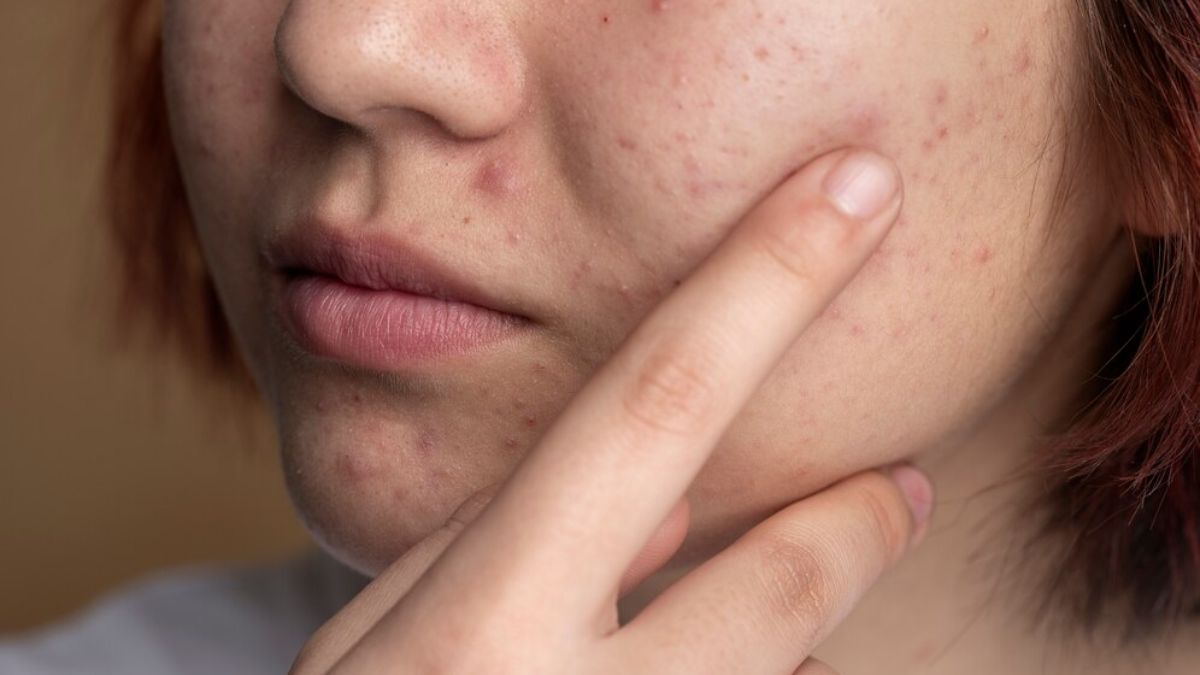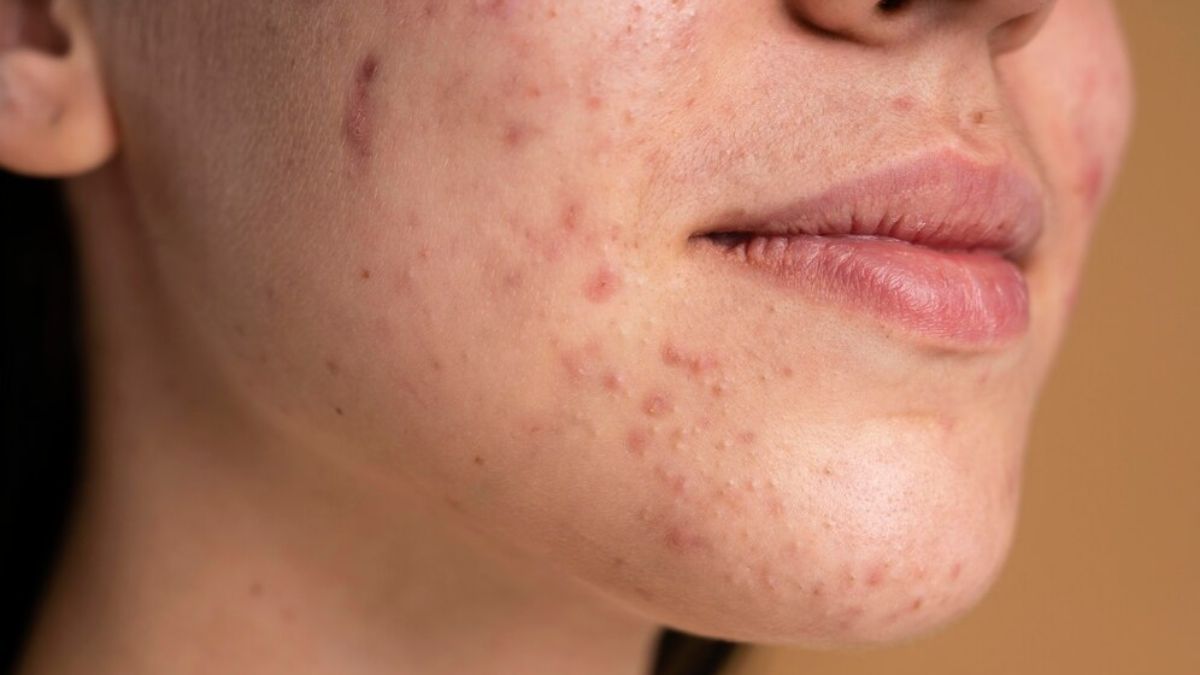
Have you been losing sleep over those pesky pimples that just won’t budge even after you have tried every home remedy known to man and every cosmetic under the sun? Turns out, you don’t need to beat yourself too much about it because the culprits could be your ancestors.
Table of Content:-
Confirming this theory, Dr DM Mahajan, Senior Consultant, Dermatology, Indraprastha Apollo Hospitals, told the Onlymyhealth team, “Genetic factors significantly influence the development and persistence of acne.” So, how does this happen and can you pull the reins of your genes? Let’s find out.
Genetic Factors That Influence Acne
“Those with a family history of acne are more likely to experience severe and persistent acne because of the genes that they have inherited that makes them more likely to develop acne,” said Dr Mahajan. In fact, a study published in the International Journal of General Medicine found that 80% of the acne risk comes from genes, while the rest is from environmental factors.

So, how does this happen? Research has identified multiple genetic variants that can increase your chance of getting acne. These genes usually influence inflammation, hormones, and how well your skin acts as a barrier against environmental factors.
Dr Mahajan answered, “Genetic factors can affect the regulation of sebum production, follicular keratinisation, and inflammation, leading to clogged pores and acne lesions.” Here’s what it means:
- Regulation Of Sebum Production: Sebum is an oily substance produced by your oil glands. Genes can influence how much sebum your glands make. Oily skin is more prone to acne breakouts.
- Follicular Keratinisation: This refers to the process of skin cell turnover inside your hair follicles. Genes can affect how quickly these cells shed and are replaced. When this process speeds up, dead skin cells can build up and clog pores.
- Inflammation: Some genes might influence how your body responds to irritation or bacteria in your pores. This can lead to redness, swelling, and the formation of pimples.
Also Read: From Over-Exfoliating To Popping Acne: Here're 8 Skincare Habits That Can Worsen Your Acne

Nature vs. Nurture: How The Environment Affects Your Inherited Acne Risk
While genetics may predispose you to acne, Dr Mahajan highlighted that environmental factors can further exacerbate your problem. Listing the environmental factors that can stimulate sebum production causing pores and hair follicles to get clogged and become inflamed, he said:
- Stress
- Hormonal fluctuations
- Certain medications
- Pollutants
- Humidity
- Poor skincare habits like inadequate cleansing and moisturising
How To Prevent And Treat Hereditary Acne?
Unfortunately, genetic variations can also influence how your skin responds to acne treatments, making it resistant to certain therapies. But that doesn’t mean it is the end of the road in your quest to achieve flawless skin.
Dr Mahajan stipulated, “Early intervention is key and can help you not just treat but also prevent getting acne.” He listed a few methods to treat acne:
- Medications like topical retinoids, benzoyl peroxide, or antibiotics can help prevent clogged pores and reduce inflammation.
- Maintaining good skincare habits, such as gentle cleansing and regular moisturising, can also help prevent acne.
- Avoiding environmental triggers like stress and hormonal fluctuations, and adopting healthy lifestyle choices, such as a balanced diet and regular exercise, can help mitigate acne severity. In severe cases, oral isotretinoin or hormonal therapies may be necessary.
- Regular dermatological monitoring and personalised treatment plans can help those with a family history of acne.
Also Read: Getting Rid of Vaginal Acne: Dermatologist Explains Causes and Treatment of Genital Pimples
Well before you start blaming your parents for your acne, understand that the problem could be in your genes, which is nothing more than a draw from a pile of cards and not a deliberate choice. Blame luck if you have to, but this is also a chance for you to love and care for yourself on a deeper level, and rise above the societal standards of beauty.
However, if this advice is too unsolicited, you should follow Dr Mahajan’s advice. Do not wait to get a hold of your pimple problem and visit a trusted and certified dermatologist to see what the issue is and build a daily skincare routine with healthy lifestyle practices.
Also watch this video
How we keep this article up to date:
We work with experts and keep a close eye on the latest in health and wellness. Whenever there is a new research or helpful information, we update our articles with accurate and useful advice.
Current Version